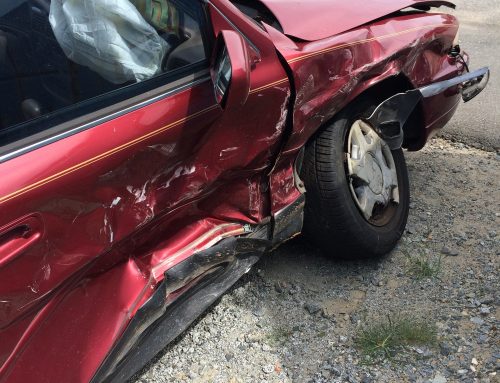One of the most frequent mistakes people make following a car accident is that they don’t seek medical assistance. Because they don’t feel immediate pain, they assume that they have survived the accident without sustaining any harm. However, the adrenalin rush most people experience after a sudden, traumatic accident can mask any pain that might be present. Many of the most commonly seen car crash injuries manifest in a delayed manner.
This means that although the injury occurred today, the pain may not appear for 48 hours. The best course of action is to accept the medical help provided by emergency personnel on the scene. Remember to always keep records of any medical screenings and treatment in case you need them as evidence for the insurance company at a later date. Learning about the most common delayed symptoms can help you identify your injury and seek the appropriate help.
- Traumatic Brain Injuries (TBIs): Traumatic brain injuries are among the most common car crash injuries, even in accidents that might be considered “minor.” Symptoms of TBIs may not appear for days or even weeks following an accident and can include headaches, dizziness, and loss of concentration and focus. Anyone experiencing these symptoms following a car crash should see a physician as soon as possible.
- Whiplash: According to insurance companies in the United States, the number one medical complaint after car crashes is whiplash. Whiplash is a neck injury caused by a forceful, rapid back-and-forth neck movement. The condition is commonly caused by rear-end car accidents, and symptoms almost always appear days after the accident. Whiplash can be exceptionally painful and may cause a wide range of ailments, including neck pain and stiffness, loss of range of motion, headaches, pain in the shoulders and arms, numbness in the arms, fatigue, dizziness, blurred vision, and tinnitus. If it is several days after an accident and you begin to feel depressed or have uncharacteristic mood swings, seek medical attention. It may be whiplash.
- Spinal Cord Injuries: Because adrenaline can mask pain, you may not realize that you have sustained a serious back or spinal cord injury. If you do not treat a spinal cord injury immediately, you can cause further damage resulting in lifelong harm. Seeking medical help after a car crash is vital in these instances.
- Abdominal Injuries: Abdominal problems may start to appear more quickly than other types of car crash injuries, sometimes after only a few hours. Abdominal pain after an accident may indicate internal injuries. You should be aware of pain and swelling and increased tenderness or bruising that spreads over the course of a few days.
- Post-traumatic Stress Disorder: PTSD is an emotional condition that manifests after a subsequent triggering event. After a car crash, you may experience fear of getting back behind the wheel or avoid driving in the same part of town. PTSD can also cause insomnia and feelings of being hyper-vigilant.
After a car accident, people should seek medical attention even if they are not feeling any pain. A physician can evaluate and assess any injuries and begin treatment immediately if necessary. They can also record your injuries, treatment, and prognosis for future legal action. After getting the medical treatment you need, call a personal injury lawyer specializing in car crash injuries. Probinsky & Cole has the experience you need, and convenient locations in Sarasota, Orlando, and Brandon.








